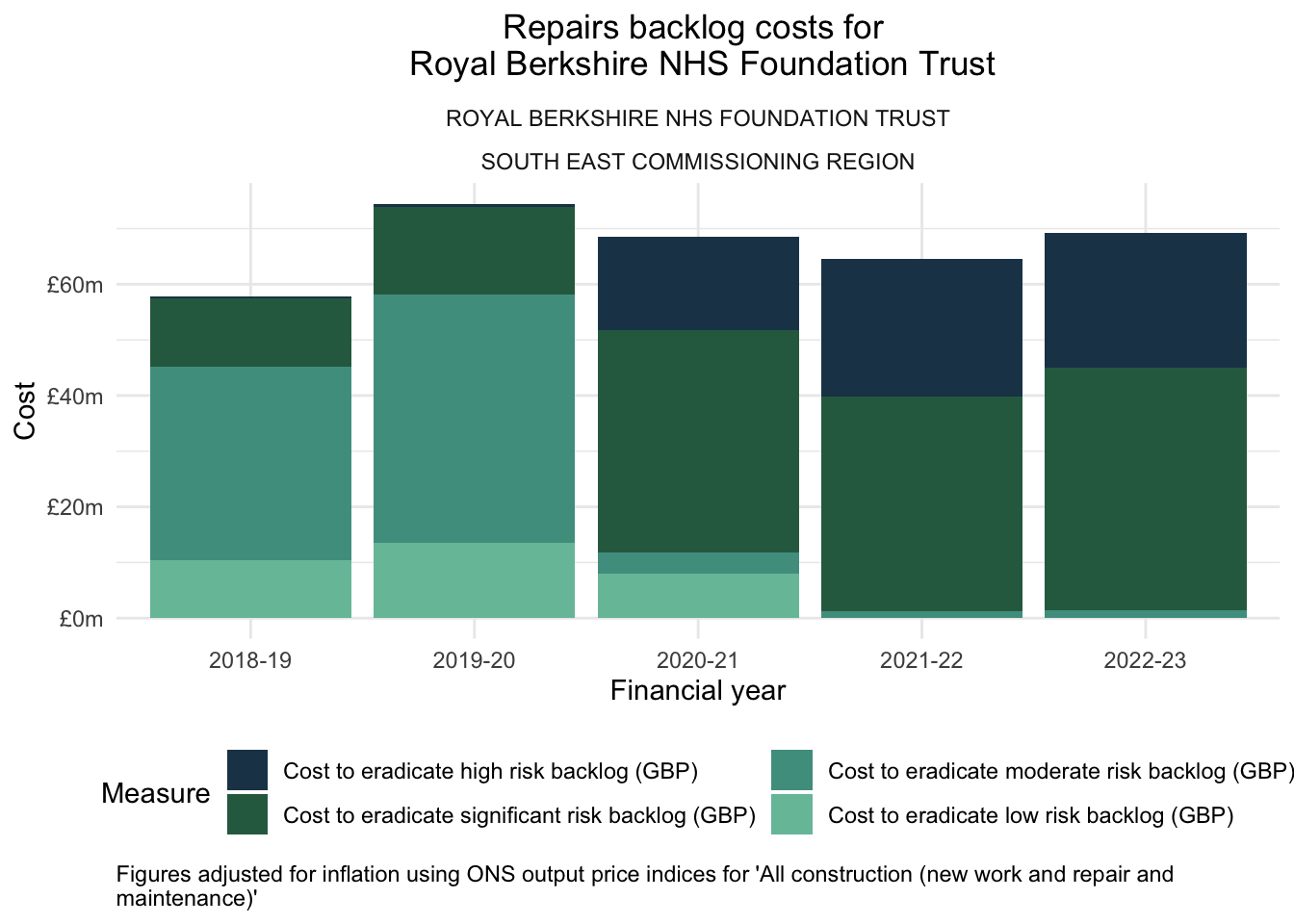
Royal Berkshire NHS Foundation Trust
The cost of general acute hospital repairs backlogs at Royal Berkshire NHS Foundation Trust has risen 7.3% from £64,552,989 to £69,284,361 in the last financial year, according to analysis of data released by NHS Digital.
The backlog of high-risk repair costs has, however, fallen 2% from £24,764,573 to £24,271,994.
At a national level the high risk repairs backlog has risen more than a third in the last year to £2,078,970,702, while the overall repairs backlog has risen 8.7% to £9,509,161,437 (figures adjusted for inflation).
In 2022-23, there were 0 “clinical service incidents caused by estates and infrastructure failure,” a drop compared to 170 such incidents in 2021-22.
Clinical service incidents are defined as those leading to “services being delayed, cancelled or otherwise interfered with owing to problems or failures related to the estates and infrastructure failure.” An incident is “considered to be a delay of at least 30 minutes to clinical services affecting at least 5 patients or equivalent.”
Incidents include problems with electrical, water or ventilation systems, internal fabric and fixtures, roofs and structures, or lifts and hoists. See the table at the bottom of this page for a list of the top three most impactful categories of incident reported by each hospital, where applicable.
Explore the data

Explore general acute hospitals in this trust
The interactive table below shows the cost to eradicate the repairs backlog at all four levels of risk at general acute hospital sites in Royal Berkshire NHS Foundation Trust. Click on the column titles once to sort by that column, smallest to largest, and again to sort largest to smallest. Type into the boxes above each column to filter to results containing the keyword being typed.
Explore the most common cause of incidents
The table below shows the most clinically impactful type of incident at each hospital site in the trust. In some cases no reason is given, or ‘miscellaneous’ is selected.